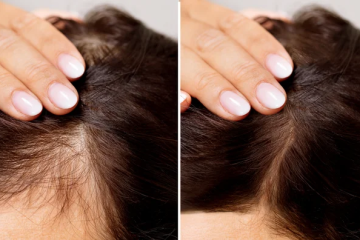Alcohol use disorder (AUD) is a complex condition that requires a comprehensive and personalized approach to treatment for alcohol use disorder. The road to recovery involves multiple stages, each with its own challenges and milestones.
1. Recognizing the Problem
The first step towards recovery is recognizing and acknowledging that there is a problem. This can be difficult, as denial is a common symptom of AUD. Signs that indicate a problem with alcohol use include:
- Drinking more or for longer than intended.
- Unsuccessful attempts to cut down or stop drinking.
- Spending a lot of time drinking or recovering from its effects.
- Neglecting responsibilities at home, work, or school.
- Continuing to drink despite negative consequences.
Acknowledging these signs is crucial for seeking help and starting the recovery journey.
2. Seeking Professional Help
Professional help is essential for effectively addressing AUD. Here are some initial steps to consider:
Primary Care Physician
Your primary care physician can perform an initial assessment, provide medical advice, and refer you to specialized treatment programs or professionals. They can also monitor your physical health throughout the recovery process.
Addiction Specialists
Addiction specialists are healthcare professionals with expertise in treating substance use disorders. They can provide comprehensive assessments, personalized treatment plans, and ongoing support, ensuring you receive targeted and effective care.
3. Detoxification
Detoxification, or detox, is the process of allowing the body to eliminate alcohol while managing withdrawal symptoms. Facilities for Alcohol detox London and other areas can provide safe spaces for this process to occur. This stage is often the first step in treating AUD and should be conducted under medical supervision due to the potential severity of withdrawal symptoms, which can include anxiety, tremors, seizures, and hallucinations. Medical professionals can provide medications and support to help you through this phase safely.
4. Inpatient Rehabilitation Programs
Inpatient rehab programs offer a structured, intensive treatment approach in a residential setting. These programs typically last from 28 days to several months and provide 24/7 medical care, therapy, and support. Inpatient rehab is particularly effective for individuals with severe AUD or those who have experienced multiple relapses. The controlled environment helps minimize exposure to triggers and allows individuals to focus solely on their recovery. For those seeking a more holistic and upscale experience, luxury alcohol rehab centers offer all the benefits of inpatient rehab with high-end amenities and personalized attention.
5. Outpatient Rehabilitation Programs
Outpatient rehab programs provide flexibility, allowing individuals to live at home while attending treatment sessions. These programs are suitable for those with a supportive home environment and less severe AUD. Outpatient programs offer a combination of individual therapy, group counseling, and educational sessions on alcohol use and recovery. They enable individuals to continue working or attending school while receiving treatment.
6. Medication-Assisted Treatment (MAT)
Medication-assisted treatment involves the use of FDA-approved medications to help manage cravings and withdrawal symptoms. Common medications include:
- Disulfiram (Antabuse): Causes unpleasant reactions when alcohol is consumed, deterring drinking.
- Naltrexone (Vivitrol): Blocks the euphoric effects of alcohol, reducing the desire to drink.
- Acamprosate (Campral): Helps stabilize brain chemistry and reduce withdrawal symptoms and cravings.
MAT is most effective when combined with counseling and behavioral therapies.
7. Cognitive-Behavioral Therapy (CBT)
Cognitive-behavioral therapy helps individuals identify and change negative thought patterns and behaviors associated with alcohol use. By developing healthier coping strategies, individuals can manage stress, avoid triggers, and reduce the risk of relapse. CBT is typically provided in individual or group therapy sessions.
8. Motivational Interviewing (MI)
Motivational interviewing is a counseling approach that helps individuals find their motivation to change. MI is particularly effective for those who may be ambivalent about quitting alcohol. It empowers individuals to take control of their recovery journey by exploring their reasons for change and building confidence.
9. 12-Step Programs
12-step programs, such as Alcoholics Anonymous (AA), offer a structured framework for recovery based on principles of mutual support, accountability, and spiritual growth. Participants attend regular meetings, share their experiences, and work through the 12 steps with the guidance of a sponsor. The sense of community and shared experiences in 12-step programs can be highly beneficial for maintaining long-term sobriety.
10. Holistic Therapies
Holistic therapies focus on treating the whole person, including their physical, mental, and emotional well-being. These therapies can complement traditional treatments and include:
- Yoga: Promotes physical health and mental relaxation, reducing stress and improving overall well-being.
- Meditation and Mindfulness: Helps individuals stay present, manage stress, and reduce cravings.
- Art and Music Therapy: Creative therapies provide a healthy outlet for expressing emotions and can be therapeutic for those in recovery.
11. Family Therapy
Family therapy involves the individual with AUD and their family members. This approach addresses the impact of alcohol use on family dynamics and helps improve communication, rebuild trust, and develop a supportive home environment. Family therapy can strengthen the support system essential for long-term recovery.
12. Sober Living Homes
Sober living homes provide a transitional living environment for individuals who have completed inpatient rehab but are not yet ready to return to independent living. These homes offer a supportive, substance-free environment where residents can practice sobriety skills, build a recovery network, and gradually reintegrate into society.
13. Aftercare Programs
Aftercare programs are crucial for maintaining long-term sobriety. These programs provide ongoing support and resources after the initial treatment phase. Aftercare may include regular therapy sessions, support group meetings, and access to sober activities and events. Continued engagement in aftercare programs helps individuals stay connected to their recovery community and address challenges as they arise.
Building a Sober Lifestyle
Creating a fulfilling and sustainable sober lifestyle is key to long-term recovery. Here are some tips to help you build a life that supports your sobriety:
14. Find New Hobbies and Interests
Discover new hobbies and interests that don’t involve alcohol. Whether it’s painting, hiking, cooking, or learning a new language, engaging in activities you enjoy can provide a positive distraction from cravings.
15. Stay Physically Active
Regular exercise can reduce stress, improve mood, and boost physical health. Find physical activities you enjoy, such as jogging, swimming, or dancing, and make them a part of your routine.
16. Eat a Balanced Diet
Nutrition plays a vital role in recovery. Eat a balanced diet rich in fruits, vegetables, lean proteins, and whole grains. Proper nutrition can improve mood, energy levels, and overall health.
17. Get Enough Sleep
Quality sleep is essential for mental and physical health. Establish a regular sleep schedule and create a restful environment to ensure you get enough rest.
18. Volunteer and Give Back
Helping others can provide a sense of purpose and fulfillment. Look for volunteer opportunities in your community or find ways to give back. Volunteering can help you build new connections and reinforce your commitment to sobriety.
The road to recovery from alcohol use disorder involves multiple stages and requires a comprehensive and personalized approach. By recognizing the problem, seeking professional help, embracing therapeutic approaches, and building a supportive environment, you can achieve long-term sobriety and lead a healthier, happier life. Remember, recovery is a personal journey, and finding what works best for you is key. With determination, support, and the right strategies, overcoming AUD is possible.



